
Op-ed
Confessions of an Interloper: Bible Criticism from the Sidelines
“Bible criticism can ruin only a faith that has already been weakened.” – Emmanuel Levinas, “The Spinoza case”
123rf
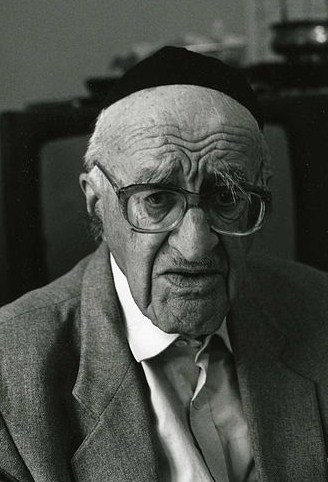
I begin with a confession. I have followed the discussion about Bible criticism and Modern Orthodoxy with great interest. But, I read as an outsider, an interloper. I am what is today called in America an ex-O, in Israel a datlash (dati le-she-avar), more precisely a baal teshuva to ultra-Orthodoxy who left Orthodoxy after thirty years (from the age of 20-50). I lived in Boro Park, Meah Shearim, and Geula, studied in haredi and Sephardic yeshivot, as well as Modern Orthodox ones (Yeshivat ha-Mivtar in Jerusalem) where I received semicha in 1984 from rabbis Chaim Brovinder, Yaakov Warhaftig and Zalman Nechemia Goldberg. I left yeshiva to pursue a doctorate in Jewish Studies which I received from Brandeis in 1994 under the tutelage of the Orthodox Maimonides scholar, Marvin Fox. While I became a committed egalitarian Jew when I began teaching at JTS in 1996 I left halakhic Judaism in the broader sense in 2008.
Thus I read this as someone who is quite familiar with the discourse but one who has little personal stake in its outcome. In that regard some readers might determine I am pasul le-edus (invalid to testify), an accusation I cannot refute.
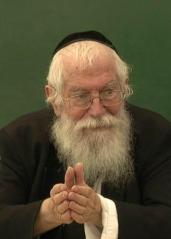
In reading the essays in Morethodoxy and TheTorah.com, beginning with Zev Farber’s courageous essay and the many reactions and statements that followed I was somewhat disappointed. The disappointment was not so much that very little new ground is being tilled here, almost all the ostensible refutations of Bible criticism I read in these essays were proffered long ago (whether their authors were familiar with that or not I do not know). That is to say, I think serious and pertinent responses to Bible criticism demand new thinking. Farber is offering what I take to be a new approach to both the reality of criticism and its impact on faith but I did not see any new thinking in response, simply the rehearsing of old ideas. I am not a Bible scholar although I have studied Mikra in yeshivot and Hebrew Bible in graduate school. I am a scholar of Jewish mystical literature and philosophy and thus I respond to this fascinating debate from that perspective.
I began with Leibowitz above because I think he makes a point that may add something to the discussion. That is, what does faith in God, even faith in Torah, have to do with the historical accuracy of the ostensible claim of its Sinaitic and divine origin? My feeling is that many of the discussants in the essays are mired in a doctrinal orbit that is more suffocating than life-affirming. The arguments put forth seem to me to suck the oxygen out of faith rather than infuse it with spirit. In short, I could not detect the “religiosity” of the criticisms.
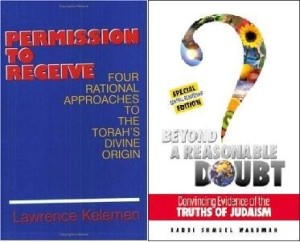
I did not leave Orthodoxy because I was convinced of Bible criticism. In my haredi days, I don’t recall Bible criticism as a topic of discussion at all. This is not because in my little haredi sub-culture we didn’t know about it. We surely did. Many of us read quite widely. It was, rather, because our faith was not dependent on doctrinal claims but a deep belief in the “myth” of avodas ha-shem, a belief in the intrinsic value of the system we were committed to. Its origins were in that regard of little consequence. By “myth” I do not mean something that stands in opposition to truth. I mean, rather, myth as a template of reality, a reality that included proximity to God, a reality that was fed by a belief in hasgakha, a reality that was a self-enclosed world of devotion.
It was a fantastical world, in many ways a beautiful world but one that also had a very disturbing, and in my mind, fatal, flaw; it cultivated xenophobia, misogyny, and rigidity even as it promised expansiveness, beauty, and love. In short, haredi Judaism did not, in my mind could not, live up to its promise. But in regards to my limited concerns here, haredi Judaism as I understand it is not invested in defending historical claims. Modern Orthodoxy seems to be. Haredi Judaism rejects the critical approach as much as Modern Orthodoxy, even more. The difference is that they think it is beside the point.
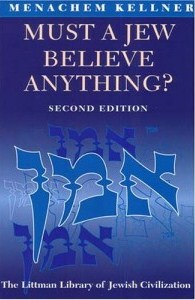
There has been much talk about Maimonides and the principles he set forth which ostensibly included a firm belief in the Mosaic authorship of the Torah (I refer the reader to Marc B. Shapiro and Menachem Kellner’s rich work on Maimonides Principles of Faith). This is certainly true. However, we also know Maimonides was quite radical when tradition did not conform to matters as he understood them. “What Maimonides thought” appears to me to be a contemporary Jewish version of “What would Jesus do?”. The answer to both is much less about the subject (Maimonides or Jesus) and much more about the questioner. In reading Maimonides Guide 1:25 on creation there is at least a plausible argument that he believed in Aristotle’s position of eternity (I refer the reader to Shlomo Pines and Herbert Davidson’s seminal essays on this topic). He explicitly accepted Plato’s version. His rejection of Aristotle’s argument for eternity was on practical grounds; he could not make sense of how eternity could square with revelation. What did he really believe? We do not know.
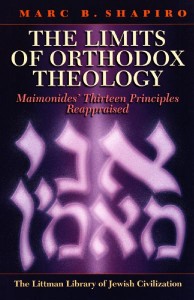
What would Maimonides believe regarding Mosaic authorship had he lived to read the scholarship of modern Bible criticism (from what we know of him, I think we can assume he surely would have read them). The only honest response in my view is an agnostic one. In this sense, the deployment of Maimonides is not about Maimonides, it is about contemporary notions of authority. Maimonides is simply a tool used to bury that authoritative stake in traditional soil.
The Hasidic and kabbalistic texts I read never address the issue of Bible criticism even though some of the later Hasidic masters certainly knew about it. It is safe to say they would have rejected the critical approach. But more important, I speculate they would have considered the entire discussion irrelevant to their understanding of Jewish belief and practice. And here may be one of the few places Hasidism and Leibowitz meet, precisely in the place where they are categorically incompatible: for Hasidism what mattered is the “myth” of a devotional life, crossing the matrix of empiricism to the place where God is everywhere. For Leibowitz this is idolatry. Leibowitz claimed Judaism was about one thing and one thing only: the performance of mitzvot. Two very different views indeed but they meet in their position, or so I surmise, that the entire debate about Mosaic authorship is irrelevant to their religious and devotional worldviews.
And it is here I suggest, with all due respect, that Modern Orthodoxy may be stuck. The defense against academic Bible brings this study inside your orbit and identifies it as a threat. That is, if the critical approach could be proven, it would undermine normative Orthodox practice. By doing so, Orthodoxy has been weakened not strengthened no matter how convincing the refutations might be. To say that the challenge of Bible criticism is relevant to Orthodoxy, and this is what all the essays I read seemed to imply, is to say that Orthodoxy is staking its very existence on a historical debate it cannot win, not because its arguments are not convincing but because it has already ceded the rules of the game to the opposition. In its attempt to defend itself, it has weakened its foundations.
Emanuel Levinas once wrote in an essay on Spinoza, “Bible criticism can ruin only a faith that has already been weakened. Does not the truth of eternal texts shine forth all the more when they are denied the external support of a dramatic and theatrical revelation? When they are studied for themselves, do they not bear witness to the divine value of their inspiration and the purely spiritual miracle of their union?” (Levinas, “The Spinoza Case” Difficult Freedom, 107).
These are not words of a heretic but a traditional Jew from Kovno, a philosopher who, among many other things, elucidated the work of R. Hayyim of Volozhin. For Levinas the Torah is more divine “the more it consists of numerous and disparate fragments, and all the more marvelous for the way in which the rabbinism develops a form of teaching that tallies with it.” In short, the less the Torah’s origins are viewed doctrinally the more wondrous the Torah becomes. While the Hasidic masters would not have put it this way, they very well may have agreed with the spirit of the remarks of the philosopher from Kovno.
I conclude with an observation of that mythic figure Yosl Rakover of Tarnopol, the fictional character created by Zvi Kolitz in his Yosl Rakover Talks to God. We meet our poor hapless Yosl in the last moments of his life in the Warsaw ghetto when everyone he knows is already dead. Toward the bitter end, poor Yosl says to God, “You may insult me, You may chastise me, You may take from me the dearest and the best that I have in the world, You may torture me to death – I will always believe in You. I will love You always and forever – even despite You.” Love of God for poor Yosl is not founded on the promise God makes to Israel. If that were its foundations, Yosl would have every right in the world to choose atheism. Yosl in his last breath loves God despite God’s rejection of him, despite the fact that in that moment when evil reigned supreme, God subverted every shred of evidence that God exists. Yosl loved God even if God didn’t exist!
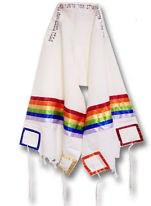 Perhaps Bible criticism is a Warsaw ghetto of a different sort. The walls of doctrinal faith on the origins of the Hebrew Bible are crumbling. Heroic efforts by luminaries such as Umberto Cassuto, Yehezkel Kaufmann, and Mordechai Breuer could not protect this weakened and weakening faith. Thankfully conventional Modern Orthodox is not Yosl of Tarnopol in the Warsaw ghetto. They are not facing physical annihilation. But their world is about to change. Or, their world already has changed and perhaps Zev Farber, Jacob Wright, Marc Brettler and others are simply articulating that change more evocatively than before. Perhaps instead of rehashing old ideas whose time has passed, their leaders should begin to ask why they invested so much of their survival on this particular question.
Perhaps Bible criticism is a Warsaw ghetto of a different sort. The walls of doctrinal faith on the origins of the Hebrew Bible are crumbling. Heroic efforts by luminaries such as Umberto Cassuto, Yehezkel Kaufmann, and Mordechai Breuer could not protect this weakened and weakening faith. Thankfully conventional Modern Orthodox is not Yosl of Tarnopol in the Warsaw ghetto. They are not facing physical annihilation. But their world is about to change. Or, their world already has changed and perhaps Zev Farber, Jacob Wright, Marc Brettler and others are simply articulating that change more evocatively than before. Perhaps instead of rehashing old ideas whose time has passed, their leaders should begin to ask why they invested so much of their survival on this particular question.
Levinas wrote a response to Yosl Rakover Talks to God entitled, “Loving the Torah more than God.” Perhaps someone should write an essay “Loving the Torah more than defending Mosaic Authorship.” Maybe that would be a new beginning. But who am I to say, I have already left the fold. Even so, even as I stand on the sidelines with my rainbow tallit, I still have hope this community can think its way out of this conundrum. Let the old ideas rest in peace. Go veiter, or as Kant said, “dare to know.”
TheTorah.com is a 501(c)(3) nonprofit organization.
We rely on the support of readers like you. Please support us.
Footnotes

Prof. Rabbi Shaul Magid is the Distinguished Fellow in Jewish Studies at Dartmouth College, and the former Jay and Jeannie Schottenstein Professor of Jewish Studies at Indiana University/Bloomington. He is also the rabbi of the Fire Island Synagogue in Seaview, NY. His M.A. is from Hebrew University, his Ph.D. from Brandeis, and his ordination from rabbis in Israel. He is the author of American Post-Judaism: Identity and Renewal in a Postethnic Society (Indiana University Press, 2013), Hasidism Incarnate: Hasidism, Christianity, and the Construction of Modern Judaism (Stanford University Press, 2014), Piety and Rebellion: Essays in Hasidism (Academic Studies press, 2019) and The Bible, the Talmud, and the New Testament: Elijah Zvi Soloveitchik's Commentary to the New Testament (University of Pennsylvania Press, 2019).


